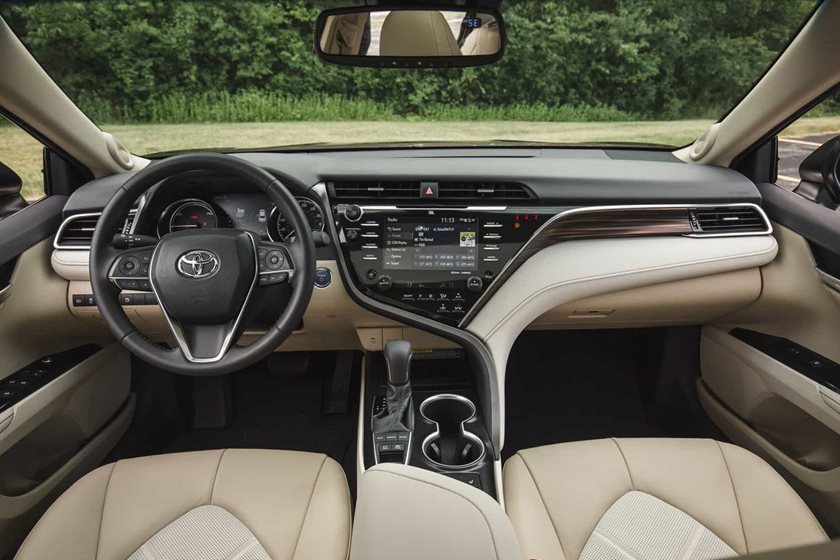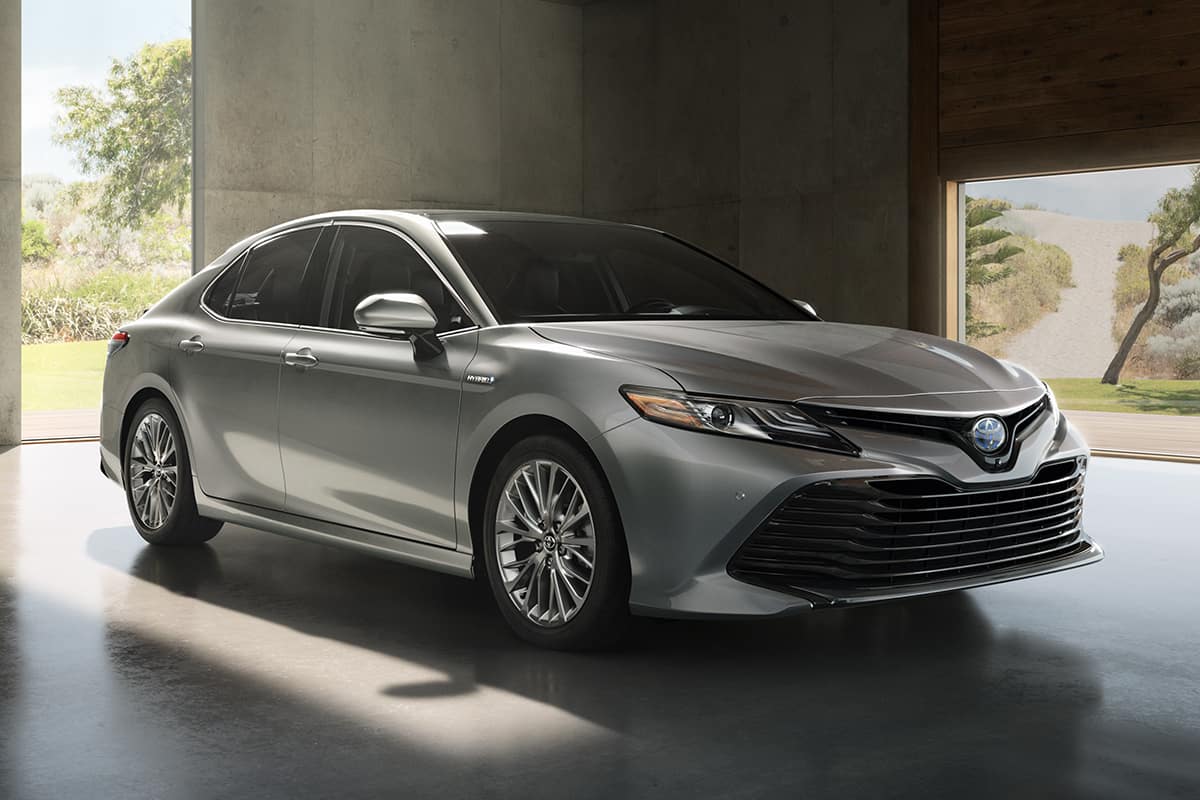By Shari Prymak
The Toyota Camry was one of the first midsized sedans to be offered with hybrid technology. It helped normalize hybrid vehicles, demonstrating that they could indeed serve as a superior alternative to conventional gas-powered vehicles. The Camry has long been a perennial favorite among midsized sedans, but with regular 4-cylnder, 6-cylinder, and all-wheel drives to choose from, is the hybrid the version to go with?
The Camry Hybrid is powered by 2.5L 4-cylinder engine matched to a battery pack and electric motor powering the front wheels. Total system output is rated at 208 horsepower, which is higher than that of the regular 4-cylinder model. Although power is perfectly adequate, the hybrid system’s strengths are refinement and efficiency. The Camry Hybrid offers near luxury car levels of smoothness and quietness while delivering exceptional fuel economy. I averaged around 5.0L/100km in a week’s worth of mostly city driving, which is nearly 50 percent better than the equivalent gas model. The hybrid’s smooth and quiet driving experience is also perfectly in keeping with the Camry’s relaxed character.
Like the driving feel, the interior of the Camry has a more upmarket feel with a wide range of features. The surfaces have a high quality fit and finish with excellent ergonomics. The infotainment system uses a straightforward interface that’s compatible with both Apple CarPlay and Android Auto. Most of the commonly used featured are controlled through simple buttons or knobs for ease of use. The front seats are comfortable enough for long-distance rides and the rear seats offer plenty of room for adults to sit comfortably. Toyota has tucked the hybrid battery under the rear seats, which means that the seatbacks are able to fold and trunk space isn’t compromised.

The Camry Hybrid is available in three trim levels, starting with the LE for an MSRP of $31,550. The $34,600 SE model adds a more aggressive look and sportier garnishes for those who find the LE’s conventional design to be too conservative. The XLE tops the range at $41,350, adding desirable extras such as leather-trimmed seats that are ventilated up front, a power sunroof, 10 inch head-up display, birds eye view monitor, and a premium audio system. All Camrys come standard with Toyota Safety Sense active safety technology, which includes a pre-collision system with pedestrian detection, lane departure warning with steering assist, and dynamic radar cruise control. One odd omission, however, is a heated steering wheel, which is not available on any trim level.
Compared to its direct rivals, the Camry Hybrid offers more choice which some buyers may appreciate. The Hyundai Sonata Hybrid is a fine alternative, but is only available in the top of the line Ultimate trim with an MSRP of $40,099. The Honda Accord Hybrid offers two trim levels, a base and Touring, and a well-proven hybrid system that’s a close match to Toyota’s synergy drive technology. Toyota, however, includes a 10 year or 240,000km battery warranty, which is superior to the 8 year or 160,000km warranty coverage offered by its rivals. With over 20 years of experience building hybrid vehicles, Toyota has also earned a well-deserved reputation for strong reliability and low ownership costs.
Toyota has made a strong effort to reduce the price difference between its regular models and the hybrid versions. This measure hasn’t quite made its way to the Camry Hybrid, which commands around a $5,000 price premium over the equivalent regular 4-cylinder model. The 4-cylinder Camry is also available with all-wheel drive, which is not offered on the hybrid. For those seeking ample power and performance, a 301 horsepower V6 engine is available on the XSE and XLE as well. Although the Camry Hybrid’s significant price premium makes it a slightly harder sell when compared to other Toyota models, the hybrid is a perfect match to the Camry’s character and remains one of the best options in the midsized sedan segment.

